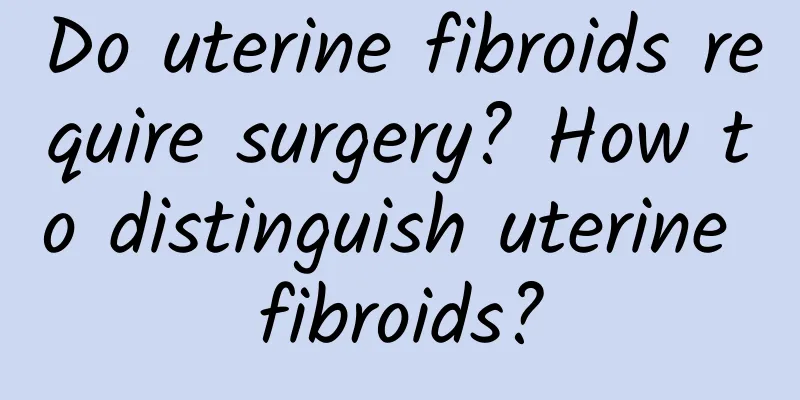What should I pay attention to after uterine effusion surgery?

|
Although uterine effusion is not a particularly serious disease and is also very common in gynecological diseases, if uterine effusion is not properly treated, it is very harmful. In severe cases, surgery is required. How is uterine effusion surgery performed? What should be paid attention to after the operation? Uterine effusion is the presence of inflammatory exudate in the pelvic cavity, which can occur after pelvic inflammatory disease, adnexitis or endometriosis (pathological). According to pathological factors, it can be divided into physiological uterine effusion and pathological uterine effusion. Physiological uterine effusion is not a bad thing for women, but pathological uterine effusion is more harmful. Once a woman suffers from this type of effusion, she should go to the hospital for treatment in time. Surgery is recommended for lumps such as hydrosalpinx or tubo-ovarian cysts; surgery is also recommended for small infection foci that cause repeated inflammation. So, how is uterine hydrops surgery performed? What should be paid attention to in diet after surgery? The principle of surgery is to completely cure the disease and avoid the chance of recurrence of residual lesions. Unilateral adnexectomy or hysterectomy plus bilateral adnexectomy should be performed. For young women, ovarian function should be preserved as much as possible. Single therapy for chronic pelvic inflammatory disease is less effective, so comprehensive treatment is appropriate. Uterine effusion diet taboos: 1. Eat light and easily digestible foods, such as adzuki beans, mung beans, winter melon, lentils, purslane, etc. Eat foods that have the effect of promoting blood circulation, regulating qi and dispersing knots, such as hawthorn, peach kernel, fruit dan peel, orange pit, orange peel, rose, kumquat, etc. Supplement protein appropriately, such as lean pork, duck, goose and quail, etc. 2. Avoid eating raw or cold foods such as cold drinks, fruits, etc. 3. Avoid spicy, warm and irritating foods such as chili peppers, mutton, dog meat, rooster, etc. 4. Avoid eating fatty, cold and sticky foods, such as fatty meat, crabs, snails, pickled and cured products, etc. 5. No smoking or drinking. The above is a brief introduction to uterine effusion. I hope it will be helpful to everyone after reading it. Women should pay attention to protecting their bodies and not let themselves easily suffer from gynecological diseases. |
<<: What should be paid attention to in the care of hysterectomy
>>: What should be paid attention to after uterine effusion surgery
Recommend
Will eating chocolate make you fat? 5 principles to lose weight and protect your heart! Nutritionist: Look carefully at sugar content and zero trans fat labels
When it comes to eating chocolate, people may hav...
Why do I have back pain after an abortion? This article will help you understand
Lower back pain after abortion is mostly caused b...
What are the common symptoms of pelvic inflammatory disease?
What are the common symptoms of pelvic inflammato...
What are the tests for Bartholinitis?
Bartholinitis is one of the common gynecological ...
How to prevent adnexitis for those who sit for a long time
Sitting for a long time can cause adnexitis. Peop...
How do you know if you have chronic cervicitis?
Chronic cervicitis is a common gynecological dise...
Lose weight and get rid of fatty liver! ? Nutritionist: 1 calorie ≠ 1 calorie
Is calorie control all you need to lose weight? X...
Experts introduce you to the clinical classification of dysmenorrhea
Dysmenorrhea is clinically classified, but many p...
What are the causes of ectopic pregnancy?
What are the causes of ectopic pregnancy? Ectopic...
Correct treatment for acute cervicitis
In daily life, women often develop gynecological ...
Symptoms of amenorrhea caused by phlegm-dampness blocking the collaterals
Symptoms of amenorrhea that may be caused by phle...
The biggest enemy of uterine fibroids
There is no clear cure for uterine fibroids, but ...
Will sexual life make cervicitis worse? How is cervicitis treated?
Chronic cervicitis is more common after childbirt...
Typical symptoms of atrophic vulvar leukoplakia at different stages
Vulvar leukoplakia, also known as female vulvar l...
What are the symptoms of endometriosis?
According to clinical data, in recent years, amon...









